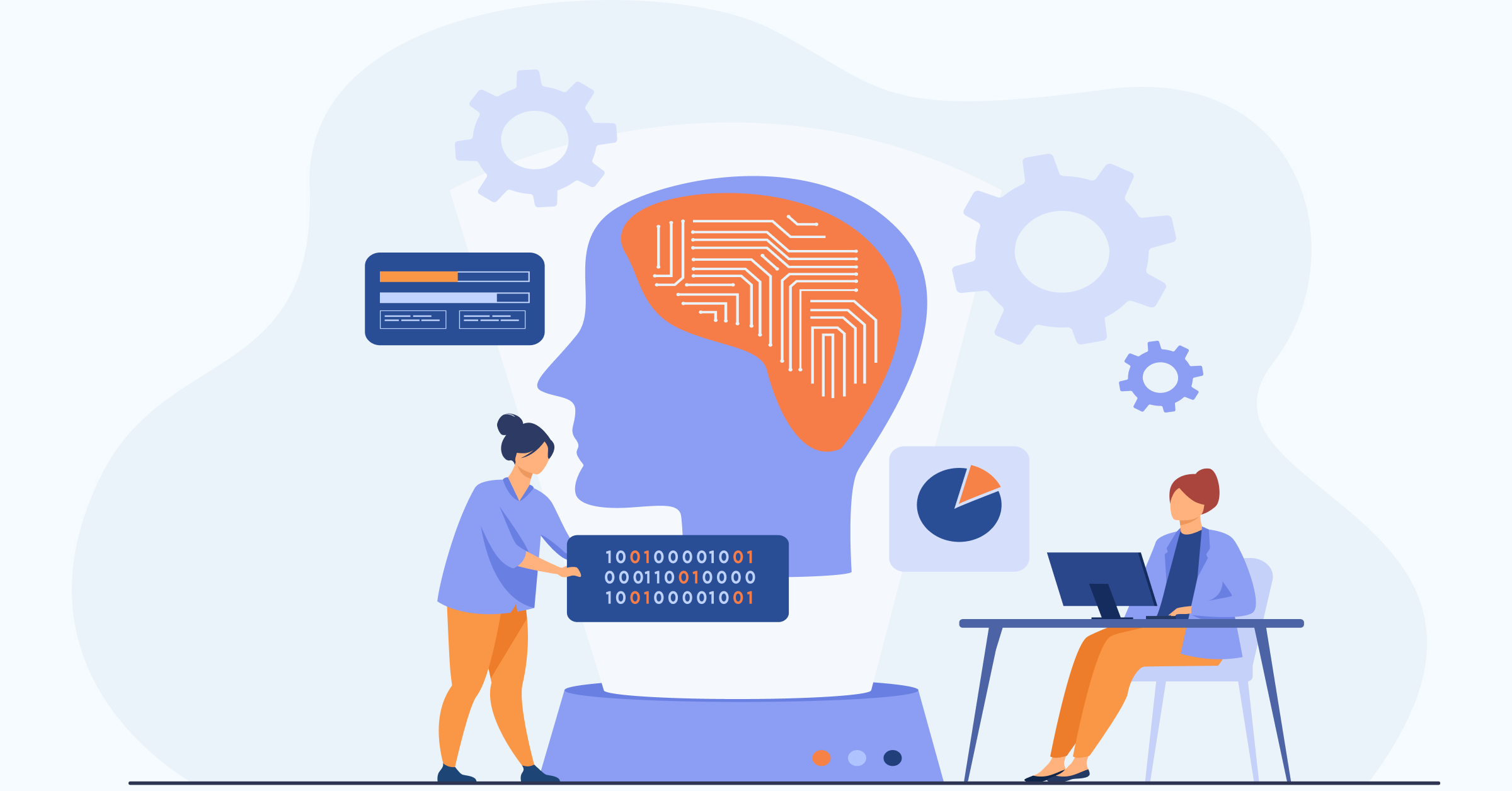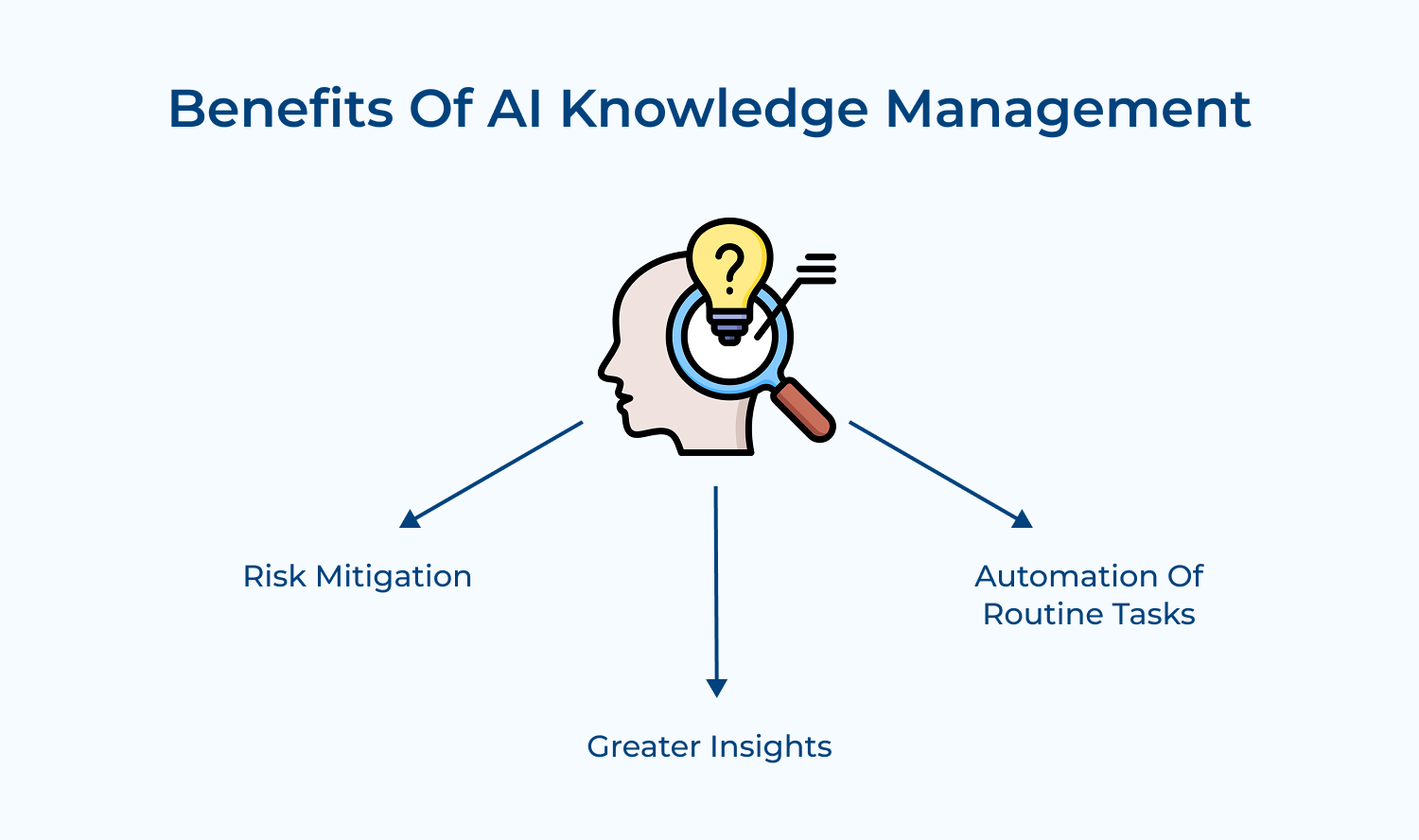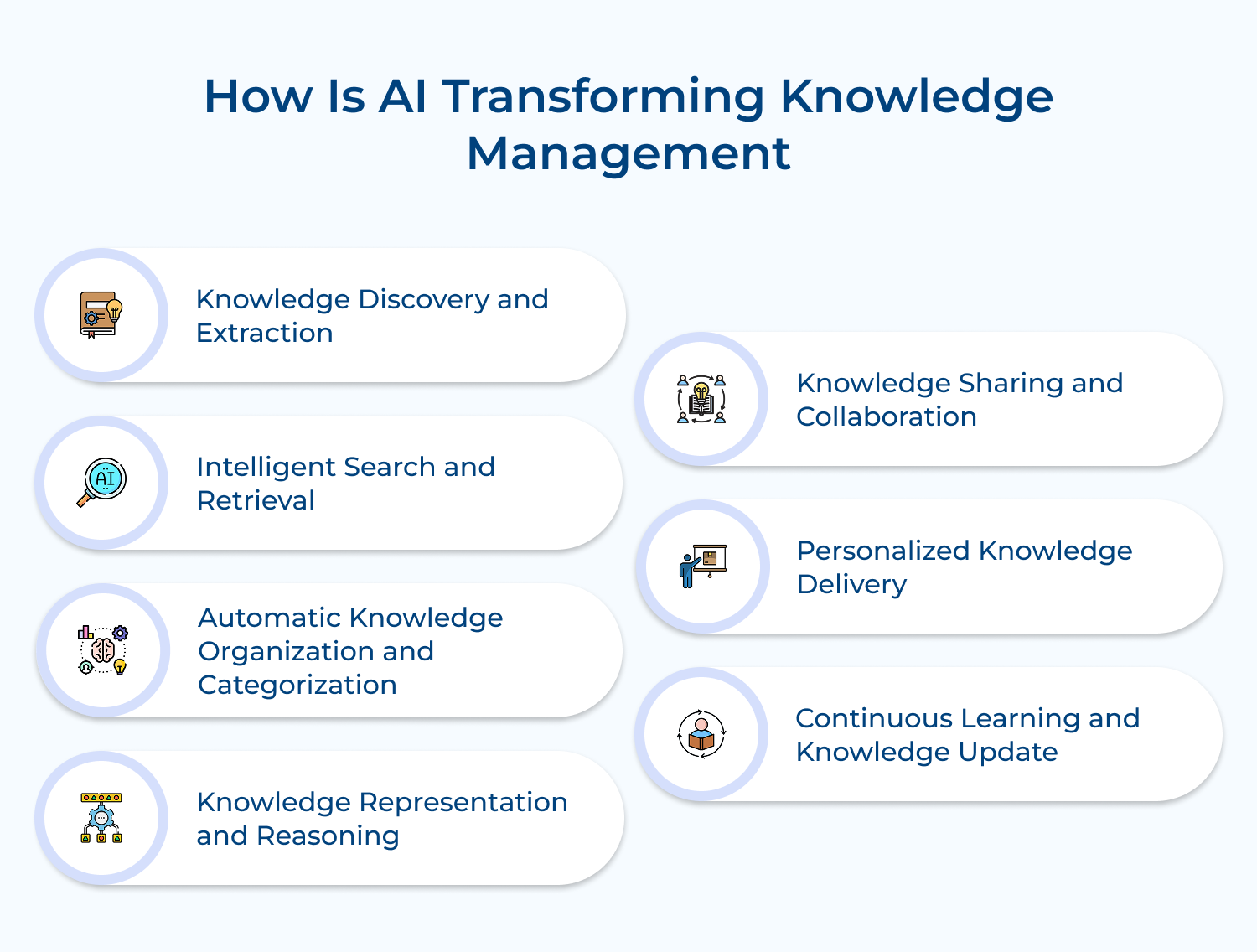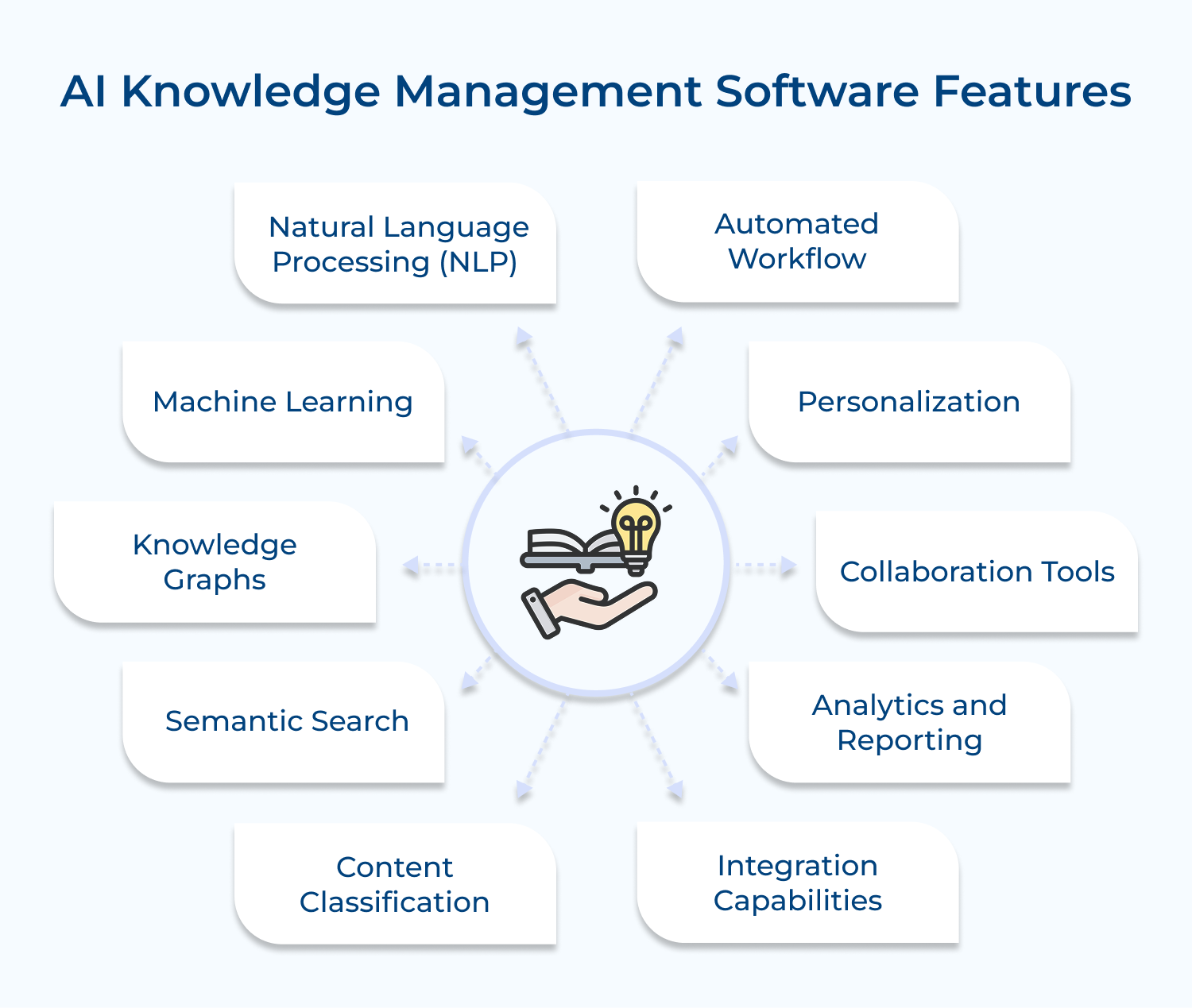1. Knowledge Discovery and Extraction
AI algorithms can analyze vast amounts of unstructured data to extract valuable insights and knowledge. Such capability enables organizations to uncover hidden patterns that would be difficult or impossible for humans to detect manually.
Implementing AI-powered chatbots or virtual assistants can also assist in extracting knowledge by answering employee inquiries and providing relevant information in real-time.
2. Intelligent Search and Retrieval
AI-powered search engines and virtual assistants can understand natural language queries. It provides contextual information from various sources. It enhances knowledge accessibility and allows users to quickly find the information they need & decision-making processes.
AI-driven search tools can also automatically categorize search results as well as suggest related content, making it easier for users to navigate and explore knowledge within the organization’s repository. These systems can incorporate semantic search capabilities to improve accuracy and precision.
3. Automatic Knowledge Organization and Categorization
AI techniques like machine learning & deep learning can automatically categorize vast amounts of information based on content, context, and metadata. It helps in structuring knowledge repositories, making it easier to navigate and retrieve relevant information.
Implementing AI-powered content tagging systems can assign metadata to knowledge assets, enabling users to quickly filter and retrieve specific information based on predefined categories or tags.
4. Knowledge Representation and Reasoning
AI technologies, such as expert systems & knowledge graphs, can represent and model complex knowledge domains and provide decision support. Such capability is valuable in fields like healthcare, finance and legal domains, where decision-making relies heavily on domain-specific knowledge.
AI can help improve the way knowledge is organized and searched for within a knowledge management system by using semantic search capabilities. It means that the system can better understand the context and meaning of user queries, making it easier to find relevant information.
5. Knowledge Sharing and Collaboration
AI-powered collaboration tools can facilitate knowledge sharing within organizations by recommending relevant experts, documents, or resources based on the context of a user’s work. It fosters better collaboration and knowledge reuse across teams/departments.
AI chatbots can be implemented to provide real-time responses to user inquiries and facilitate knowledge sharing within an organization. Chatbots can also be integrated with collaboration tools to streamline communication between team members.
6. Personalized Knowledge Delivery
AI algorithms can analyze user behavior, preferences and context to deliver personalized knowledge recommendations. It ensures that users receive the most pertinent information tailored to their needs, improving efficiency and productivity.
AI chatbots can provide personalized assistance and support to individuals as they interact with knowledge management systems. Chatbots can offer guidance, answer questions, and provide customized recommendations to help users navigate as well as to utilize knowledge resources effectively.
7. Continuous Learning and Knowledge Update
AI systems can continuously learn from new data and update existing knowledge models. It allows organizations to stay up-to-date with the latest information and evolving knowledge domains.
AI can analyze user knowledge gaps and learning progress to suggest additional resources or learning opportunities to bridge those gaps. It can help facilitate continuous learning and professional development for employees within an organization.







